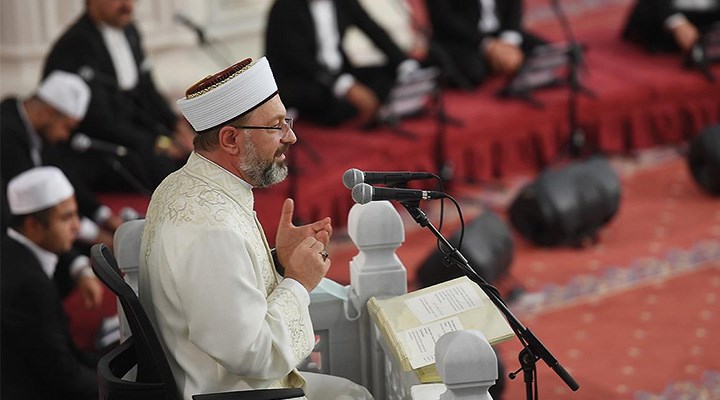A deputy from Turkey’s far-right Nationalist Movement Party (MHP), an ally of the ruling Justice and Development Party (AKP), stated during budget talks that criticizing the Directorate of Religious Affairs amounts to providing support for what he called “crusaders,” in reference to a destructive, anti-Muslim mentality.
According to a report by the Birgün daily on Thursday, MHP Deputy Chairman Yaşar Yıldırım commented on criticism directed at Turkey’s Religious Affairs Directorate by opposition figures, saying that criticizing “the most important institution in the fight against the crusaders” amounts to showing support for them.
“That said, of course, the directorate has some shortcomings. Everybody in it, from the directorate president to the individual imams, should be careful about their behavior and attitude. This is because they represent Islam and Muslims everywhere they go,” Yıldırım added.
Yıldırım’s remarks came after Burak Erbay, an MP from the main opposition Republican People’s Party (CHP), reminded lawmakers that Turkey’s Religious Affairs Directorate has a budget of TL 13 billion ($1.6 billion), which is higher than that of seven ministries.
“Pfizer, which operates in 175 countries, has around 96,000 employees and BioNtech has 300,000. The Religious Affairs Directorate, on the other hand, has 131,789 employees,” Erbay added, comparing the directorate’s expenditures on employees to the well-known pharma companies.
The opposition MP also referred to the TL 90 million ($11.6 million) Harput Islamic-Ottoman social complex currently being built in eastern Elazığ province, asking why Turkey needs such a complex while the construction of houses for people who lost their homes in earthquakes has not yet been finished.
Erbay also mentioned an expertise center built by the directorate for TL 40 million ($5.1 million). “It has a [Turkish] bath and a steam room. You allocated TL 2.7 million ($348,000) just for the landscaping.”
The directorate has been criticized a number of times by opposition figures for its extravagant spending that contradicts Islam, which promotes modesty.
It has also attracted criticism for following mainstream Hanafi Sunni Islam and being “indifferent to the diversity of Turkish Islam” and for mixing religion with politics and openly supporting the policies of the ruling Justice and Development Party (AKP) over the past few years.
